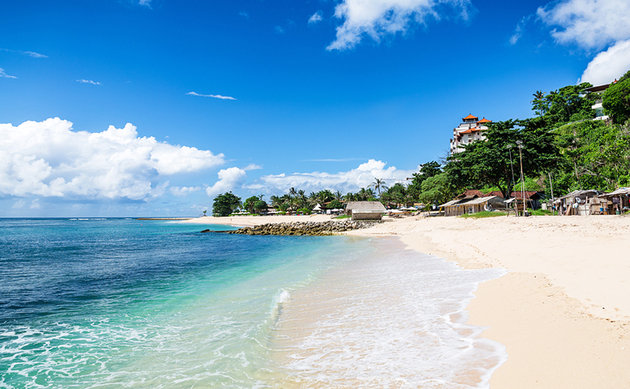Badung Regent I Wayan Adi Arnawa has publicly addressed the growing controversy surrounding the leasing of public land on the eastern coast of Tanjung Benoa, South Kuta, Bali. He emphasized that the land remains public property despite being leased to a private resort and that the beach remains accessible to everyone.
“This is a public beach. Everyone is allowed to use it,” Adi Arnawa said after opening the Badung Education Fair 2025, Tuesday (October 14, 2025), as quoted by Kompas.
The land in question belongs to the Badung Regency Government and has been leased to The Sakala Resort Bali in accordance with Minister of Home Affairs Regulation (Permendagri) No. 16 of 2016, which regulates the management of regional assets. Under this regulation, government-owned land cannot be used for free but must be leased to generate local revenue.
“The use of assets must comply with Permendagri No. 16 of 2016 — they must be leased, not given for free. The funds go into Badung Regency’s revenue,” Adi explained.
Lease Worth USD 83,000 for 5 Years
According to Kadek Oka Parmadi, Head of Asset Management at the Regional Financial and Asset Management Agency (BPKAD) of Badung, the leased area covers 2,600 square meters (26 are) and is rented for USD 83,000 over five years. The lease runs from September 30, 2025, until 2030 that transferred to the regional treasury.
The lease value was determined through an official appraisal process, and the rental contract is valid for a maximum of five years, subject to review. Oka stressed that the lease does not grant the private party the right to restrict public access.
“The lease does not allow the beach to be closed off from public or social use. It only applies to commercial activities,” he explained, as quoted by Warta Bali Online.
Regent Adi Arnawa firmly denied allegations that he personally signed the lease. He clarified that the contract was signed by Badung Regional Secretary Ida Bagus Surya Suamba. He also emphasized that no permanent structures are allowed on the leased land.
“Based on my staff’s report, the area is only being used for greening, such as planting coconut trees, and for beach arrangement and preservation, so it looks more attractive,” Adi said.
He reiterated that there is no private beach policy in the area. The beach remains open to the public, although accommodation businesses must pay if they use the beachfront as part of their commercial view.
Legal Framework: Beach Use and Rental
Beaches in Indonesia are classified as public spaces. Therefore, land and beach leasing is regulated under Permendagri No. 16/2016 on the Management of Regional Assets and Coastal Management Law No. 27/2007 (as amended by Law No. 1/2014). The following key provisions apply:
- Leasing must be based on an official appraisal and a legally binding agreement with the relevant government authority.
- Public access must be maintained at all times; leases do not grant exclusive control or ownership of coastal land.
- The use of leased land is restricted to non-permanent structures, landscaping, and tourism-related enhancements.
- Permanent construction requires additional legal approval and must comply with coastal zoning regulations.
- Lessees are prohibited from restricting traditional community access, including access for local fishermen and the general public.
- Violations of these terms can result in lease termination and legal sanctions under national and regional regulations.
This framework reflects broader efforts to prevent the privatization of public coastal spaces. Earlier this year, a similar dispute arose in Serangan Beach, where fences erected by private developers limited access for fishermen. Bali Governor I Wayan Koster criticized such actions, warning that beaches are public assets and should remain accessible to everyone.
Source: kompas.com, wartabalionline.com, nusabali.com, baliexpat.com.
Photo Credit: dikutabali.com

